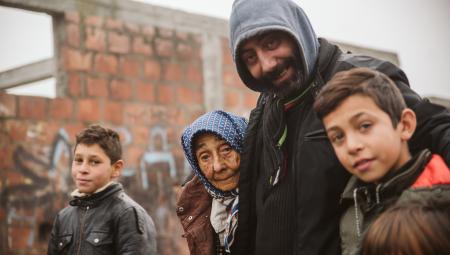Work Package 1: Research in and with care homes
This work responds to the research brief’s identification of the need for evidence that can both improve the productivity of care home research and capture the key measures and outcomes used in UK care home research that could inform a minimum data set (MDS). The work package leads are Dr Sarah Kelly (University of Cambridge) and Dr Guy Peryer (University of East Anglia). You can read more about Work Package 1 here.
Work Package 2: Creation of an individual patient data (IPD) repository of UK care home trials
This work package will develop a repository of individual resident data from existing care home trials. Study characteristics (inclusion/exclusion, trial methodology, and intervention details), care home specific details (staff ratios, staff retention, bed size, case mix, ownership) and individual participant level data (demographics, outcome measures, resource use, and medications) will be included in the repository. Work Package 2 is led by Lisa Irvine (University of Hertfordshire) and Dr Jenni Burton (University of Glasgow). You can read more about Work Package 2 here.
Work package 3: Development and implementation of a MDS
The aims of this work package are to develop an understanding of how a MDS could work in the UK context; identify care home generated data that could contribute to a MDS; and generate a matrix of potential variables and their characteristics, and identify stakeholder priorities for inclusion in a MDS. The work package leads are Prof Barbara Hanratty (Newcastle University), Dr Gizdem Akdur and Massirfufulay K Musa (University of Hertfordshire). You can read more about Work Package 3 here.
Work Package 4: Data linkage of existing administrative data sources to inform the prototype MDS
The NHS collects a huge amount of data, including the electronic medical record in general practice, administrative hospital data, and operational data sets from the emergency services, urgent care and community health. Local authorities also collect data on packages of publicly funded social care and needs assessments. This work package aims to identify, document (create metadata) and link these existing data sources together to establish a basis for the MDS. This will demonstrate what a MDS could look like without the need of additional data collection by care homes. The work package is led by Arne Wolters and Adam Steventon (The Health Foundation).
Work Package 5 Longitudinal pilot of the MDS
This work package will assess the feasibility of collecting data directly from care homes and matching this to native data to populate a complete MDS; assess the quality of the MDS data, comprising care home-collected data alongside native data, to create a MDS with the minimum number of scales/attributes required; demonstrate the utility of the matched MDS data to stakeholders (ICSs, CCGs, local authorities, providers and residents and their families); and systematically assess potential barriers and facilitators to wider implementation of the MDS. Work Package 5 is led by Prof Adam Gordon (University of Nottingham) and Ann-Marie Towers (University of Kent).








